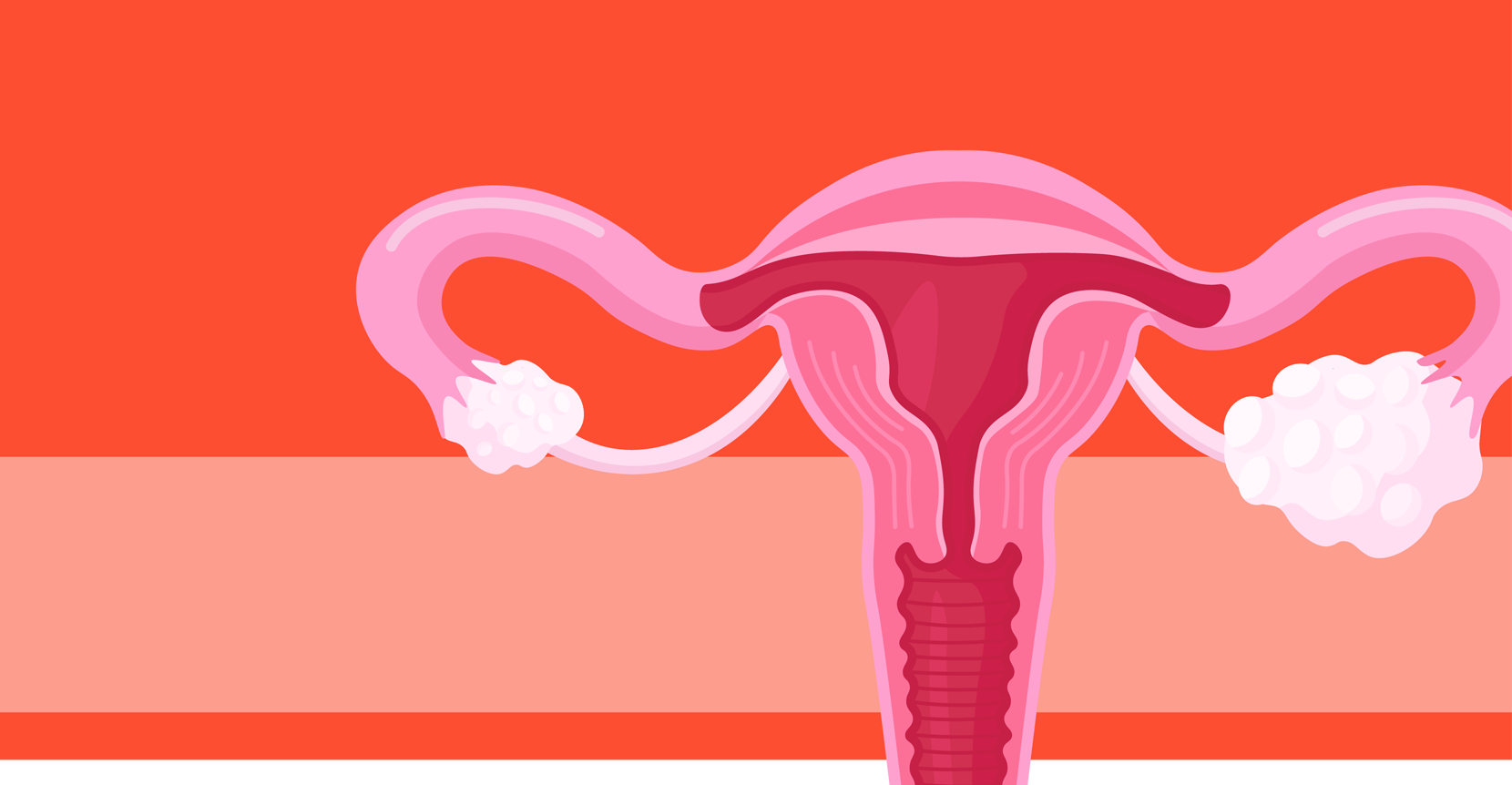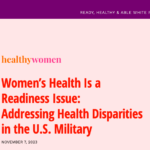Medically reviewed by Col. Ada D. Stewart, M.D.
Infographic text
What is PCOS?
Polycystic ovary syndrome (PCOS) is a condition where an imbalance in hormones causes many changes in the body.
The exact cause of PCOS is unknown.
About 1 in 10 people assigned female at birth have PCOS.
Symptoms vary, but usually include:
- Irregular or missed periods
- Abnormal hair growth
- Hair loss or thinning hair
- Acne
- Trouble getting pregnant
- Weight gain, especially in belly
- Pelvic pain
- Heavy bleeding
How PCOS affects your body
PCOS is a multi-organ disease that can affect your endocrine, reproductive and cardiovascular systems.
- Ovaries
- Extra follicles, abnormal periods
- Uterus
- Pregnancy complications
- Risk of uterine cancer
- Adrenal glands
- Higher testosterone levels
- Pituitary gland
- Acne and hair growth
- Pancreas
- Insulin resistance
- Liver
- Excess fat cells
- Cardiovascular
- High blood pressure
- High cholesterol
- Increased risk of heart disease
- Abdomen
- Fat accumulation
PCOS and other health conditions
Imbalanced hormones and weight gain caused by PCOS can lead to other health complications, including:
- Type 2 diabetes
- Cardiovascular disease
- Fatty liver disease
- Sleep apnea
- Weight gain
- Mood disorders (anxiety/depression)
Fact: Up to 65% of women with PCOS experience excess weight gain.
Mission-readiness and PCOS
PCOS puts you at risk for health conditions that can affect military height/weight standards and mission-readiness.
- Stress can affect mental health and overall well-being
- Pelvic pain can interfere with performance
- Unusual periods and heavy bleeding can soil uniforms
- Insulin resistance and abdominal weight gain
- Can make it hard to meet standards for weight, interfering with promotions, reenlistment or professional development opportunities
- Can worsen disordered eating, which is common in the military
Up to 8% of women in the military are diagnosed with an eating disorder in comparison to 5% in civilian women.
Can people with PCOS stay in the military?
There are currently no relaxed weight standards for women diagnosed with PCOS. But a diagnosis is not an automatic discharge from the military. You may need a waiver for medication to balance hormones, but you can continue your career and be mobilized or deployed.
Talk to your medical provider for advice about continuing your job after a PCOS diagnosis.
This educational resource was created with support from Sumitomo Pharma.
















